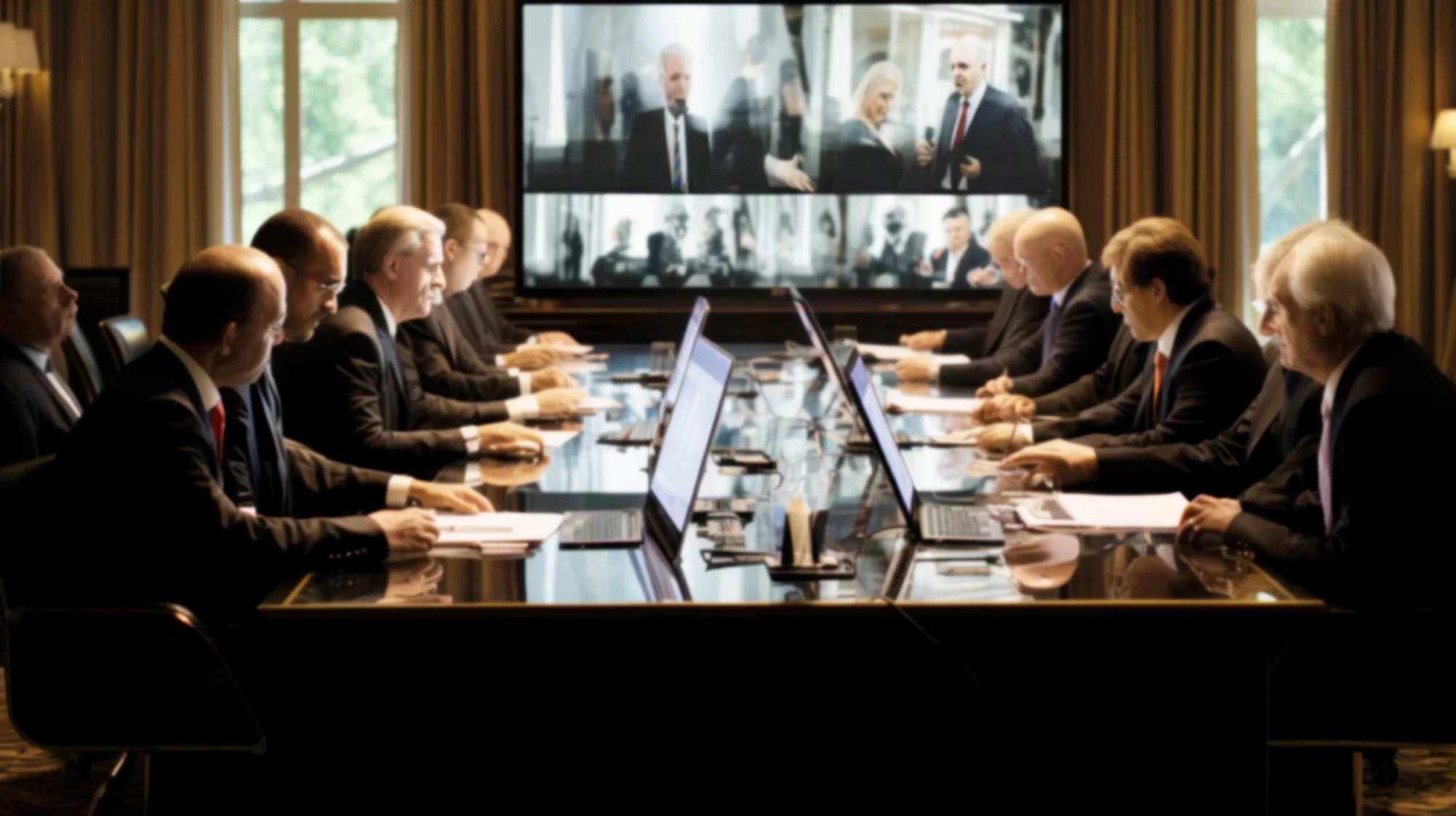Whether it’s protecting the cash register or industry trade secrets, all businesses must prevent crime from causing direct loss and business interruption. From employee crime to occupational fraud, any losses incurred from a crime committed against the business can be devastating for the company and its stakeholders.
The likelihood of a business experiencing crime can vary based on several factors, including the type of business, its location, industry, size, and security measures in place. While it’s challenging to provide a specific likelihood applicable to all businesses, the risk of crime is a real concern that businesses should address through proactive security measures and risk management strategies.
Cover losses and insure high-value items and other assets with a comprehensive crime policy that addresses the unique risks that your business faces.
What is Business Crime Insurance?
Also known as commercial crime insurance or fidelity insurance, business crime insurance is designed to protect businesses from financial losses resulting from criminal activities. This coverage addresses various forms of dishonesty, fraud, and theft that can occur within a business, involving both employees and external parties.
Some of the benefits of business crime coverage include:
- Employee Management and Oversight: Organizations with a large number of employees or those with complex operations may face challenges in maintaining strict oversight. Commercial crime insurance can provide a safety net in case of dishonest actions by employees.
- Safeguarding Against Cybercrime: With the increasing prevalence of cybercrime, organizations that handle sensitive digital information may benefit from coverage against crimes such as hacking, data breaches, and electronic fraud. Cybercrime coverage is often included in commercial crime insurance policies.
- Contractual or Regulatory Requirements: Certain contracts or industry regulations may require organizations to have crime insurance as part of risk management and compliance efforts. It’s essential to review contractual obligations and regulatory requirements to ensure alignment.
- Peace of Mind and Risk Mitigation: Even organizations with robust internal controls may benefit from the added layer of protection that commercial crime insurance offers. It provides peace of mind and can act as a financial safety net in the event of unforeseen criminal activities.
Who is Crime Insurance For?
Commercial crime policies can be beneficial to the following entities and situations:
- Small Businesses: Small businesses, including retailers, restaurants, and service providers, can benefit from business crime insurance to protect against theft, burglary, employee dishonesty, and other financial losses.
- Retail Businesses: Retailers often deal with cash transactions and may be at risk of shoplifting, employee theft, or fraud. Business crime insurance helps mitigate these risks.
- Financial Institutions: Banks, credit unions, and other financial institutions face specific risks related to fraud, embezzlement, and other financial crimes. Business crime insurance is crucial for managing these risks.
- Professional Services: Professionals such as accountants, lawyers, and consultants may handle sensitive financial information. Business crime insurance can protect against the risk of errors, omissions, or fraudulent activities within the professional services industry.
- Manufacturing and Distribution: Businesses involved in manufacturing or distributing goods may face risks related to theft of inventory, fraud, or employee dishonesty. Business crime insurance provides coverage for these risks.
- Technology Companies: Technology companies that deal with valuable intellectual property and sensitive data may benefit from business crime insurance to protect against cybercrime, data breaches, and employee misconduct.
- Healthcare Providers: Healthcare organizations, including medical practices and clinics, handle sensitive patient information and may be susceptible to fraudulent activities. Business crime insurance can help mitigate these risks.
- Hospitality Industry: Hotels, restaurants, and other businesses in the hospitality industry may face risks related to employee theft, credit card fraud, or other criminal activities. Business crime insurance provides coverage for such risks.
- Nonprofit Organizations: Nonprofit organizations, like any other business, may be vulnerable to employee dishonesty, embezzlement, or fraud. Business crime insurance can help protect against financial losses in the nonprofit sector.
- Any Business with Employees: Businesses with employees are susceptible to employee dishonesty, which can include theft, embezzlement, or fraudulent activities. Business crime insurance provides coverage for such actions.
Do All Organizations Need Commercial Crime Insurance?
A crime insurance policy is a valuable and prudent risk management tool that can benefit many organizations. Whether or not an organization needs commercial crime insurance depends on various factors, including its size, industry, nature of operations, and susceptibility to certain risks and crime-related losses. If the organization has a history of past incidents involving employee theft, fraud, or other crimes, it may be an indicator that commercial crime insurance is necessary to mitigate future risks.
What Does Commercial Crime Insurance Cover?

Commercial crime insurance provides coverage for any loss sustained from various criminal activities and dishonest acts. The specific coverage provided by a commercial crime insurance policy can vary, but it typically includes protection for the following types of crimes:
- Employee Dishonesty: Coverage for losses resulting from theft, embezzlement, or fraud committed by employees. This can include theft of cash, forgery, or misappropriation of funds.
- Forgery or Alteration: Protection against financial losses resulting from the forgery or alteration of checks, drafts, promissory notes, or other financial instruments.
- Theft of Money and Securities: Coverage for theft or disappearance of money, securities, or other property while on the business premises or in transit.
- Computer and Funds Transfer Fraud: Protection against losses due to fraudulent funds transfers or electronic crimes, including unauthorized access to computer systems.
- Robbery and Safe Burglary: Coverage for losses resulting from theft, robbery, or safe burglary of property on the business premises.
- Credit Card Forgery and Funds Transfer Fraud: Coverage for losses resulting from the unauthorized use of credit cards and fraudulent funds transfers.
- Client Property: Protection for the loss of client property in the care, custody, and control of the insured business.
- Extortion and Kidnap/Ransom: Coverage for expenses related to extortion threats, including ransom payments and costs associated with dealing with a kidnapping or extortion event.
- Money Orders and Counterfeit Money: Coverage for losses due to the acceptance of counterfeit money orders or counterfeit currency.
- Commercial Burglary: Protection against financial losses resulting from burglary or theft of property from the business premises.
- Identity Fraud Expense: Coverage for expenses incurred to restore the business’s and its employees’ identities following identity theft.
- Cybercrime and Computer Fraud: Protection against losses resulting from cybercrime, computer fraud, and hacking, including unauthorized access to computer systems and data breaches.
How Does Employee Dishonesty Coverage Protect You?
Employee dishonesty coverage is a component of commercial crime insurance that protects businesses against financial losses resulting from dishonest or fraudulent acts committed by employees. This coverage is designed to address the risk of theft, embezzlement, forgery, and other dishonest actions that employees may engage in during their employment.
What is Not Covered by a Commercial Crime Insurance Policy?
A commercial crime policy typically has specific exclusions that outline the circumstances or types of losses that are not covered by the policy. While specific exclusions can vary between policies, some common exclusions found in commercial crime insurance policies include:
- Prior Acts: Losses or dishonest acts that occurred before the retroactive date specified in the policy are typically excluded. The retroactive date is the date from which coverage begins.
- Acts of the Insured: Dishonest acts committed by the business owner, partners, officers, or employees who have significant ownership in the company may be excluded.
- Knowledge of Prior Acts: Losses that the insured was aware of or knew of before obtaining the policy may be excluded. Policies often require the insured to disclose any known losses during the application process.
- Unauthorized Transactions: Losses resulting from transactions or transfers that were authorized by the insured, even if they were later determined to be fraudulent or unauthorized.
- Property Damage: Damage to physical property, such as buildings or equipment, may be excluded from crime insurance policies. Property damage is typically covered under other types of insurance, such as property insurance.
- Employee Dishonesty Outside Scope of Employment: Dishonest acts committed by employees outside the scope of their employment duties may be excluded.
- Contractual Liability: Liabilities assumed by the insured under a contract may be excluded. Commercial crime insurance typically covers losses arising from dishonest acts rather than contractual obligations.
- Securities and Investment Exclusions: Losses related to investments, securities, or financial instruments may be subject to specific exclusions or limitations.
- Governmental or Regulatory Actions: Losses resulting from fines, penalties, or other actions imposed by governmental or regulatory authorities may be excluded.
- War and Terrorism: Losses caused by war, acts of war, terrorism, or related events may be excluded or subject to limitations.
- Fraudulent Trading: Losses resulting from fraudulent trading practices may be excluded, especially if the insured is involved in financial markets.
How Much Does Commercial Crime Insurance Cost?
The cost of commercial crime insurance can vary widely based on several factors, and it is influenced by the unique characteristics of each business. The coverage limits chosen by the business and the deductible amount selected can impact the premium. Higher coverage limits and lower deductibles typically result in higher premiums. Companies’ past loss history, including any previous claims related to employee dishonesty or other crimes, can affect the premium. A history of losses may result in higher premiums.
What is the Difference Between Fidelity Bonds and Crime Insurance?

Employee dishonesty bonds, also known as fidelity bonds or dishonesty bonds, are insurance products designed to protect businesses from financial losses caused by fraudulent or dishonest acts committed by employees. These bonds provide an extra layer of protection beyond standard commercial crime insurance, specifically addressing the risk of employee dishonesty.
Fidelity bonds and crime insurance are both insurance products designed to provide financial protection against losses resulting from dishonest or fraudulent acts. While they share similarities, there are key differences between the two.
Fidelity bonds are a type of insurance that specifically focuses on protecting businesses from losses caused by the dishonest acts of their employees. They are often referred to as employee dishonesty bonds. Fidelity bonds are typically “named perils” policies, meaning they specifically list the perils or risks they cover. The coverage is limited to the perils mentioned in the policy.
Crime insurance is a broader category of insurance that provides coverage for a wide range of crimes, including those committed by employees (employee dishonesty) as well as crimes committed by third parties or external entities. It offers greater flexibility, allowing businesses to tailor coverage to their specific needs. Businesses can select the coverages and limits that best address their unique risks.
Additional Coverage Options: Commercial Property Insurance and More
To ensure adequate protection for your business, consider investing in other insurance policies:
- Commercial Property Insurance: This is designed to protect businesses against financial losses resulting from damage or loss of physical assets, including buildings, equipment, inventory, furniture, and other physical assets owned or used by a business.
- General Liability: This provides coverage for property damage, bodily injury, and related liabilities, protecting businesses from the risks associated with accidents.
Protect Your Business with Comprehensive Insurance Policies
Find the right insurance company for your needs. Dream Assurance coordinates with multiple carriers to help you get the best deals in commercial insurance. Get an instant quote from our insurance agents today.
Whether it’s protecting the cash register or industry trade secrets, all businesses must prevent crime from causing direct loss and business interruption. From employee crime to occupational fraud, any losses incurred from a crime committed against the business can be devastating for the company and its stakeholders.
The likelihood of a business experiencing crime can vary based on several factors, including the type of business, its location, industry, size, and security measures in place. While it’s challenging to provide a specific likelihood applicable to all businesses, the risk of crime is a real concern that businesses should address through proactive security measures and risk management strategies.
Cover losses and insure high-value items and other assets with a comprehensive crime policy that addresses the unique risks that your business faces.
What is Business Crime Insurance?
Also known as commercial crime insurance or fidelity insurance, business crime insurance is designed to protect businesses from financial losses resulting from criminal activities. This coverage addresses various forms of dishonesty, fraud, and theft that can occur within a business, involving both employees and external parties.
Some of the benefits of business crime coverage include:
- Employee Management and Oversight: Organizations with a large number of employees or those with complex operations may face challenges in maintaining strict oversight. Commercial crime insurance can provide a safety net in case of dishonest actions by employees.
- Safeguarding Against Cybercrime: With the increasing prevalence of cybercrime, organizations that handle sensitive digital information may benefit from coverage against crimes such as hacking, data breaches, and electronic fraud. Cybercrime coverage is often included in commercial crime insurance policies.
- Contractual or Regulatory Requirements: Certain contracts or industry regulations may require organizations to have crime insurance as part of risk management and compliance efforts. It’s essential to review contractual obligations and regulatory requirements to ensure alignment.
- Peace of Mind and Risk Mitigation: Even organizations with robust internal controls may benefit from the added layer of protection that commercial crime insurance offers. It provides peace of mind and can act as a financial safety net in the event of unforeseen criminal activities.
Who is Crime Insurance For?
Commercial crime policies can be beneficial to the following entities and situations:
- Small Businesses: Small businesses, including retailers, restaurants, and service providers, can benefit from business crime insurance to protect against theft, burglary, employee dishonesty, and other financial losses.
- Retail Businesses: Retailers often deal with cash transactions and may be at risk of shoplifting, employee theft, or fraud. Business crime insurance helps mitigate these risks.
- Financial Institutions: Banks, credit unions, and other financial institutions face specific risks related to fraud, embezzlement, and other financial crimes. Business crime insurance is crucial for managing these risks.
- Professional Services: Professionals such as accountants, lawyers, and consultants may handle sensitive financial information. Business crime insurance can protect against the risk of errors, omissions, or fraudulent activities within the professional services industry.
- Manufacturing and Distribution: Businesses involved in manufacturing or distributing goods may face risks related to theft of inventory, fraud, or employee dishonesty. Business crime insurance provides coverage for these risks.
- Technology Companies: Technology companies that deal with valuable intellectual property and sensitive data may benefit from business crime insurance to protect against cybercrime, data breaches, and employee misconduct.
- Healthcare Providers: Healthcare organizations, including medical practices and clinics, handle sensitive patient information and may be susceptible to fraudulent activities. Business crime insurance can help mitigate these risks.
- Hospitality Industry: Hotels, restaurants, and other businesses in the hospitality industry may face risks related to employee theft, credit card fraud, or other criminal activities. Business crime insurance provides coverage for such risks.
- Nonprofit Organizations: Nonprofit organizations, like any other business, may be vulnerable to employee dishonesty, embezzlement, or fraud. Business crime insurance can help protect against financial losses in the nonprofit sector.
- Any Business with Employees: Businesses with employees are susceptible to employee dishonesty, which can include theft, embezzlement, or fraudulent activities. Business crime insurance provides coverage for such actions.
Do All Organizations Need Commercial Crime Insurance?
A crime insurance policy is a valuable and prudent risk management tool that can benefit many organizations. Whether or not an organization needs commercial crime insurance depends on various factors, including its size, industry, nature of operations, and susceptibility to certain risks and crime-related losses. If the organization has a history of past incidents involving employee theft, fraud, or other crimes, it may be an indicator that commercial crime insurance is necessary to mitigate future risks.
What Does Commercial Crime Insurance Cover?

Commercial crime insurance provides coverage for any loss sustained from various criminal activities and dishonest acts. The specific coverage provided by a commercial crime insurance policy can vary, but it typically includes protection for the following types of crimes:
- Employee Dishonesty: Coverage for losses resulting from theft, embezzlement, or fraud committed by employees. This can include theft of cash, forgery, or misappropriation of funds.
- Forgery or Alteration: Protection against financial losses resulting from the forgery or alteration of checks, drafts, promissory notes, or other financial instruments.
- Theft of Money and Securities: Coverage for theft or disappearance of money, securities, or other property while on the business premises or in transit.
- Computer and Funds Transfer Fraud: Protection against losses due to fraudulent funds transfers or electronic crimes, including unauthorized access to computer systems.
- Robbery and Safe Burglary: Coverage for losses resulting from theft, robbery, or safe burglary of property on the business premises.
- Credit Card Forgery and Funds Transfer Fraud: Coverage for losses resulting from the unauthorized use of credit cards and fraudulent funds transfers.
- Client Property: Protection for the loss of client property in the care, custody, and control of the insured business.
- Extortion and Kidnap/Ransom: Coverage for expenses related to extortion threats, including ransom payments and costs associated with dealing with a kidnapping or extortion event.
- Money Orders and Counterfeit Money: Coverage for losses due to the acceptance of counterfeit money orders or counterfeit currency.
- Commercial Burglary: Protection against financial losses resulting from burglary or theft of property from the business premises.
- Identity Fraud Expense: Coverage for expenses incurred to restore the business’s and its employees’ identities following identity theft.
- Cybercrime and Computer Fraud: Protection against losses resulting from cybercrime, computer fraud, and hacking, including unauthorized access to computer systems and data breaches.
How Does Employee Dishonesty Coverage Protect You?
Employee dishonesty coverage is a component of commercial crime insurance that protects businesses against financial losses resulting from dishonest or fraudulent acts committed by employees. This coverage is designed to address the risk of theft, embezzlement, forgery, and other dishonest actions that employees may engage in during their employment.
What is Not Covered by a Commercial Crime Insurance Policy?
A commercial crime policy typically has specific exclusions that outline the circumstances or types of losses that are not covered by the policy. While specific exclusions can vary between policies, some common exclusions found in commercial crime insurance policies include:
- Prior Acts: Losses or dishonest acts that occurred before the retroactive date specified in the policy are typically excluded. The retroactive date is the date from which coverage begins.
- Acts of the Insured: Dishonest acts committed by the business owner, partners, officers, or employees who have significant ownership in the company may be excluded.
- Knowledge of Prior Acts: Losses that the insured was aware of or knew of before obtaining the policy may be excluded. Policies often require the insured to disclose any known losses during the application process.
- Unauthorized Transactions: Losses resulting from transactions or transfers that were authorized by the insured, even if they were later determined to be fraudulent or unauthorized.
- Property Damage: Damage to physical property, such as buildings or equipment, may be excluded from crime insurance policies. Property damage is typically covered under other types of insurance, such as property insurance.
- Employee Dishonesty Outside Scope of Employment: Dishonest acts committed by employees outside the scope of their employment duties may be excluded.
- Contractual Liability: Liabilities assumed by the insured under a contract may be excluded. Commercial crime insurance typically covers losses arising from dishonest acts rather than contractual obligations.
- Securities and Investment Exclusions: Losses related to investments, securities, or financial instruments may be subject to specific exclusions or limitations.
- Governmental or Regulatory Actions: Losses resulting from fines, penalties, or other actions imposed by governmental or regulatory authorities may be excluded.
- War and Terrorism: Losses caused by war, acts of war, terrorism, or related events may be excluded or subject to limitations.
- Fraudulent Trading: Losses resulting from fraudulent trading practices may be excluded, especially if the insured is involved in financial markets.
How Much Does Commercial Crime Insurance Cost?
The cost of commercial crime insurance can vary widely based on several factors, and it is influenced by the unique characteristics of each business. The coverage limits chosen by the business and the deductible amount selected can impact the premium. Higher coverage limits and lower deductibles typically result in higher premiums. Companies’ past loss history, including any previous claims related to employee dishonesty or other crimes, can affect the premium. A history of losses may result in higher premiums.
What is the Difference Between Fidelity Bonds and Crime Insurance?

Employee dishonesty bonds, also known as fidelity bonds or dishonesty bonds, are insurance products designed to protect businesses from financial losses caused by fraudulent or dishonest acts committed by employees. These bonds provide an extra layer of protection beyond standard commercial crime insurance, specifically addressing the risk of employee dishonesty.
Fidelity bonds and crime insurance are both insurance products designed to provide financial protection against losses resulting from dishonest or fraudulent acts. While they share similarities, there are key differences between the two.
Fidelity bonds are a type of insurance that specifically focuses on protecting businesses from losses caused by the dishonest acts of their employees. They are often referred to as employee dishonesty bonds. Fidelity bonds are typically “named perils” policies, meaning they specifically list the perils or risks they cover. The coverage is limited to the perils mentioned in the policy.
Crime insurance is a broader category of insurance that provides coverage for a wide range of crimes, including those committed by employees (employee dishonesty) as well as crimes committed by third parties or external entities. It offers greater flexibility, allowing businesses to tailor coverage to their specific needs. Businesses can select the coverages and limits that best address their unique risks.
Additional Coverage Options: Commercial Property Insurance and More
To ensure adequate protection for your business, consider investing in other insurance policies:
- Commercial Property Insurance: This is designed to protect businesses against financial losses resulting from damage or loss of physical assets, including buildings, equipment, inventory, furniture, and other physical assets owned or used by a business.
- General Liability: This provides coverage for property damage, bodily injury, and related liabilities, protecting businesses from the risks associated with accidents.
Protect Your Business with Comprehensive Insurance Policies
Find the right insurance company for your needs. Dream Assurance coordinates with multiple carriers to help you get the best deals in commercial insurance. Get an instant quote from our insurance agents today.


